Paraplegia in extension and paraplegia in flexion occur only after the spinal shock has ceased. Paraplegia in extension indicates an increase in the extensor muscle tone owing to the overactivity of gamma efferent nerve fibers to muscle spindles as the result of the release of these neurons from the higher…
Tag: Internal medicine
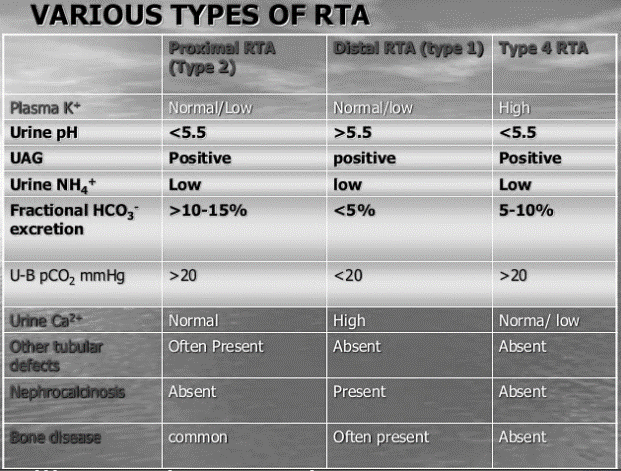
Renal Tubular Acidosis (RTA) : Mnemonics
Renal Tubular Acidosis (RTA) cause non-anion gap metabolic acidosis. Type 1: H+ excretion defect (A proton or 1st element of periodic table) This occurs in distal tubule (hence, distal defect) K+ is excreted instead of H+ causing Hypokalemia. Distal tubule H+ is non-functioning – urine pH >5.5. Chronic acidosis leads…
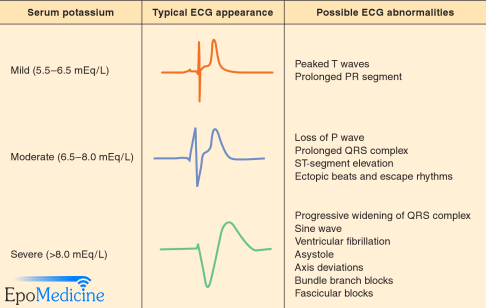
Hyperkalemia Management – Mnemonic Approach
Mnemonic: C BIG K D Calcium gluconate (Cardiac stabilizer) It is generally accepted that calcium should be given when there are ECG changes associated with hyperkalaemia. Calcium gluconate 10% 10-30 ml IV (1-3 gm) over 5-10 minutes (Can be repeated after 5 minutes if ECG changes persistent) 0.5 ml/kg in…

GRACE, HEART and TIMI score Mnemonics : Cardiac Chest Pain Risk Stratification
GRACE Score Mnemonic: GRACE A. Global Registry of Acute Coronary Events B. Renal: Creatinine C. Age D. Cardiac: Heart rate Systolic blood pressure Cardiac arrest at admission Killip class: I – No CHF II – Basal rales and/or JVD III – Pulmonary edema IV – Cardiogenic shock E. ECG and…
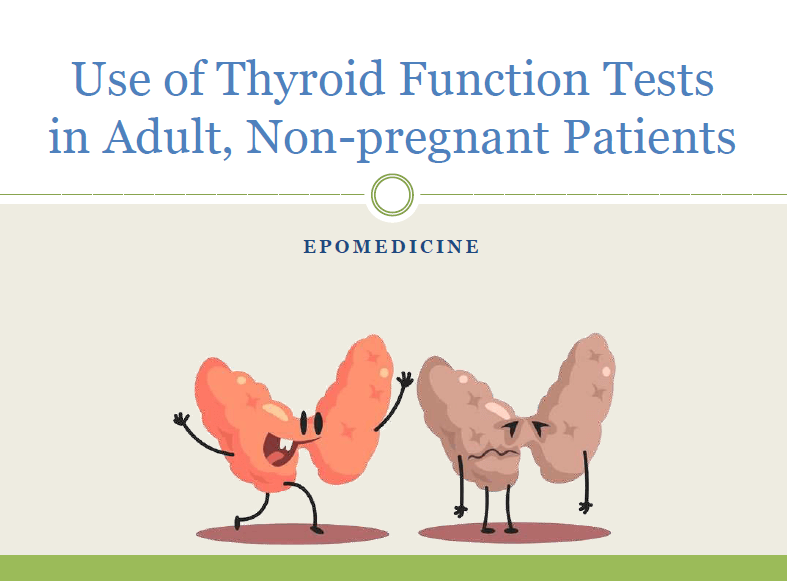
Use of Thyroid Function Test in Adult, Non-pregnant patients
The presentation attached below covers approach to management of thyroid disorders and appropriate use of thyroid function test (TFT) during diagnosis and follow-up of patients with thyroid disorders. Few MCQs for self-assessment 1. Patients with subclinical hypothyroidism should be considered for LT4 therapy if the patient has:A. A family history…
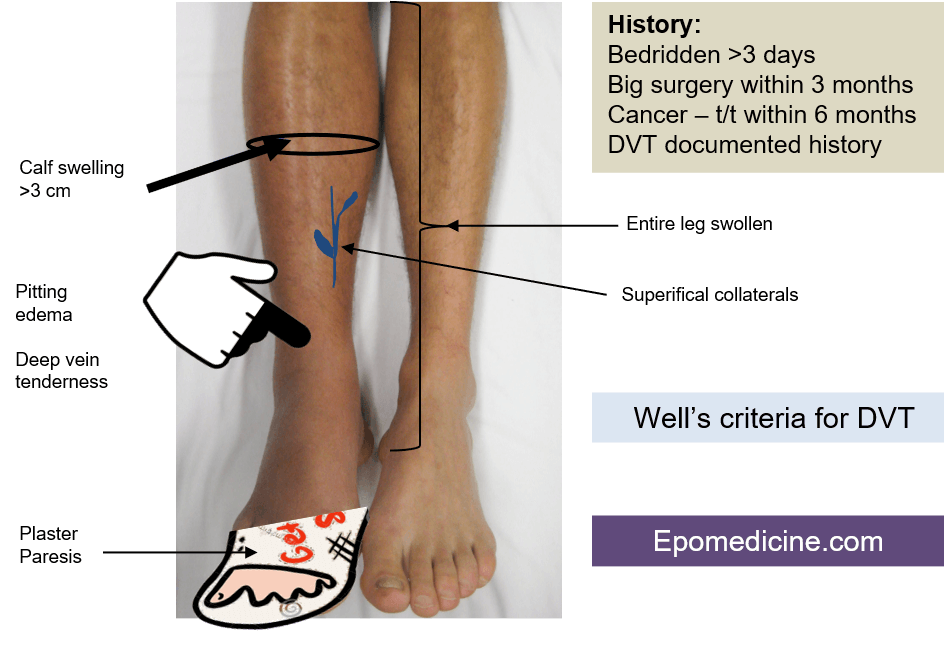
Well’s criteria for DVT with Mnemonic
Mnemonic: ABCD(CD)E(CDE) – 4P A: Alternate diagnosis of DVT more likely (-2) B: Bedridden recently >3 days or Big (major) surgery within 3 months (+1) C: Cancer – treatment or palliation within 6 months (+1) D: Deep venous involvement: Mnemonic – CD Collateral (non-varicose) superficial veins present (+1) Deep venous…
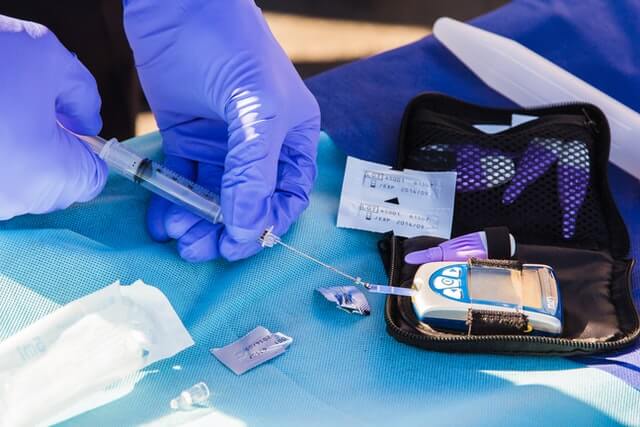
Diabetes Made Easy : Epomedicine Series
Approach to Uncomplicated Diabetes Mellitus : Simplified Management of Diabetes – GLUCOSE BAD mnemonic DKA : Mnemonic Approach and Clinical Aspects GIK Regimen – Rule of Ten Simplified Guide to Statin Therapy Diabetic Ketosis without Acidosis Diabetic Foot Management
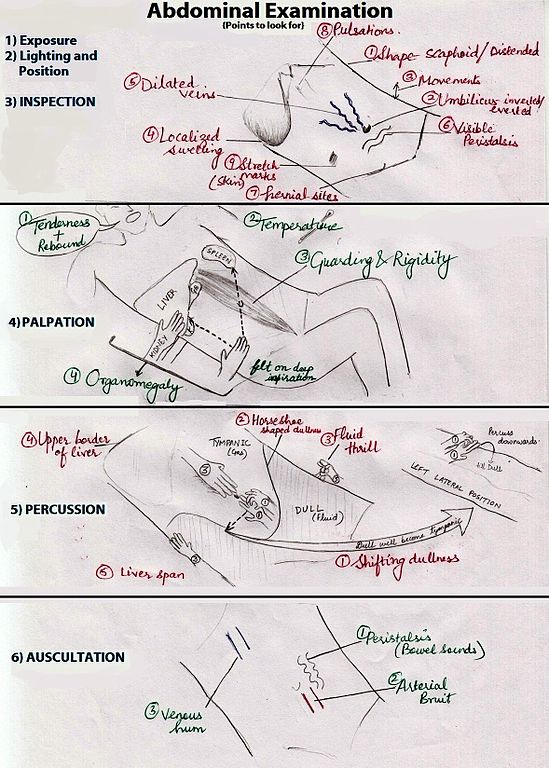
Common mistakes in Per Abdominal examination
1. Forgetting to Expose abdomen adequately: Before examination, patient should ideally be exposed from the nipples to mid thigh. Failure to do so may lead to missed findings during examination e.g. Hernia 2. Abdominal symmetry and movement: Abdominal symmetry and movement should be examined tangentially and from leg end. Comment…
